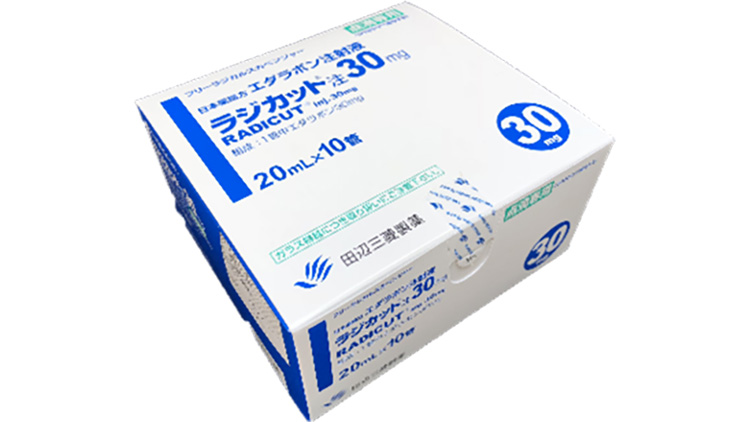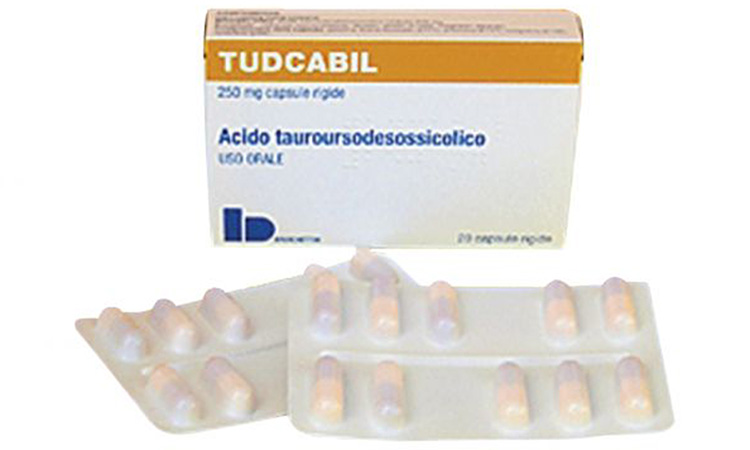Radicut (edaravone) vs Tudcabil (tauroursodeoxycholic acid)
Radicut (edaravone) vs Tudcabil (tauroursodeoxycholic acid)
Radicut (edaravone) is an intravenous medication approved for the treatment of amyotrophic lateral sclerosis (ALS), a neurodegenerative condition; it works by scavenging free radicals to potentially slow the decline in physical function associated with ALS. Tudcabil (tauroursodeoxycholic acid), on the other hand, is a bile acid being investigated for its potential neuroprotective effects and has been used off-label for various conditions, including cholestatic liver diseases and certain neurological disorders. When deciding between these medications, it is crucial to consider the specific condition being treated, as Radicut is specifically indicated for ALS, while Tudcabil's use would depend on the off-label indications supported by current medical evidence and the prescribing physician's judgment.
Difference between Radicut and Tudcabil
| Metric | Radicut (edaravone) | Tudcabil (tauroursodeoxycholic acid) |
|---|---|---|
| Generic name | Edaravone | Tauroursodeoxycholic acid |
| Indications | Amyotrophic lateral sclerosis (ALS) | Cholestatic liver diseases |
| Mechanism of action | Free radical scavenger | Choleretic and anti-apoptotic |
| Brand names | Radicut, Radicava | Tudcabil |
| Administrative route | Intravenous | Intravenous |
| Side effects | Headache, gait disturbance, bruising | Diarrhea, nausea, vomiting |
| Contraindications | Hypersensitivity to edaravone or excipients | Hypersensitivity to tauroursodeoxycholic acid or excipients |
| Drug class | Neuroprotective agent | Bile acid |
| Manufacturer | Mitsubishi Tanabe Pharma | Albireo Pharma |
Efficacy
Efficacy of Radicut (Edaravone) in ALS
Radicut, known generically as edaravone, is a medication that has been approved for the treatment of Amyotrophic Lateral Sclerosis (ALS), a progressive neurodegenerative disease. The efficacy of Radicut in ALS patients has been demonstrated in clinical trials, where it has shown to slow the decline in physical function. The pivotal trial that led to its approval was a six-month, placebo-controlled study that involved ALS patients who were relatively early in the course of their disease. Patients treated with Radicut experienced less decline in physical function as measured by the ALS Functional Rating Scale-Revised (ALSFRS-R) compared to those who received a placebo.
The mechanism by which Radicut exerts its effects in ALS is believed to be through its antioxidant properties, which may help to reduce oxidative stress in the neurons. Oxidative stress is thought to contribute to the death of motor neurons in patients with ALS. While Radicut has been shown to be beneficial, it is not a cure for ALS and does not reverse the damage already done by the disease. Instead, it appears to slow the progression of symptoms, potentially improving quality of life and extending survival for some patients.
Efficacy of Tudcabil (Tauroursodeoxycholic Acid) in ALS
Tudcabil, with the active ingredient tauroursodeoxycholic acid (TUDCA), is a bile acid that has been studied for its potential off-label use in the treatment of ALS. While not currently approved for this indication, emerging research has suggested that TUDCA may have neuroprotective effects that could be beneficial in the management of ALS. In preclinical studies, TUDCA has shown promise in protecting neurons and preserving motor function, which has led to further investigation in human clinical trials.
Clinical trials are essential to establish the efficacy and safety of TUDCA for ALS patients. Preliminary results from small-scale studies have been encouraging, indicating that TUDCA may slow the progression of ALS when used in combination with riluzole, the standard treatment for ALS. However, larger and more comprehensive clinical trials are needed to confirm these findings and to fully understand the potential role of TUDCA in the treatment of ALS. Until such data is available, the use of TUDCA for ALS remains experimental and should be considered with caution.
Regulatory Agency Approvals
Radicut
-
Food and Drug Administration (FDA), USA

-
Health Canada

-
Pharmaceuticals and Medical Devices Agency (PMDA), Japan

Tudcabil
-
Italian Medicines Agency (AIFA), Italy

Access Radicut or Tudcabil today
If Radicut or Tudcabil are not approved or available in your country (e.g. due to supply issues), you can access them via Everyone.org.
How it works

Make an enquiry
Choose the medicine you want to buy, answer a couple of questions, and upload your prescription to speed things up. We’ll get back to you within 24 hours.


Make an enquiry
Choose the medicine you want to buy, answer a couple of questions, and upload your prescription to speed things up. We’ll get back to you within 24 hours.


Breeze through the paperwork
We'll guide you through the required documents for importing unapproved medicine, ensuring you have all the necessary information.


Get a personalized quote
We’ll prepare a quote for you, including medicine costs and any shipping, administrative, or import fees that may apply.


Receive your medicine
Accept the quote and we’ll handle the rest - sourcing and safely delivering your medicine.

Some text on this page has been automatically generated. Speak to your physician before you start a new treatment or medication.
Let's talk
If you have any questions, call us or send us a message through WhatsApp or email:
Contact us




